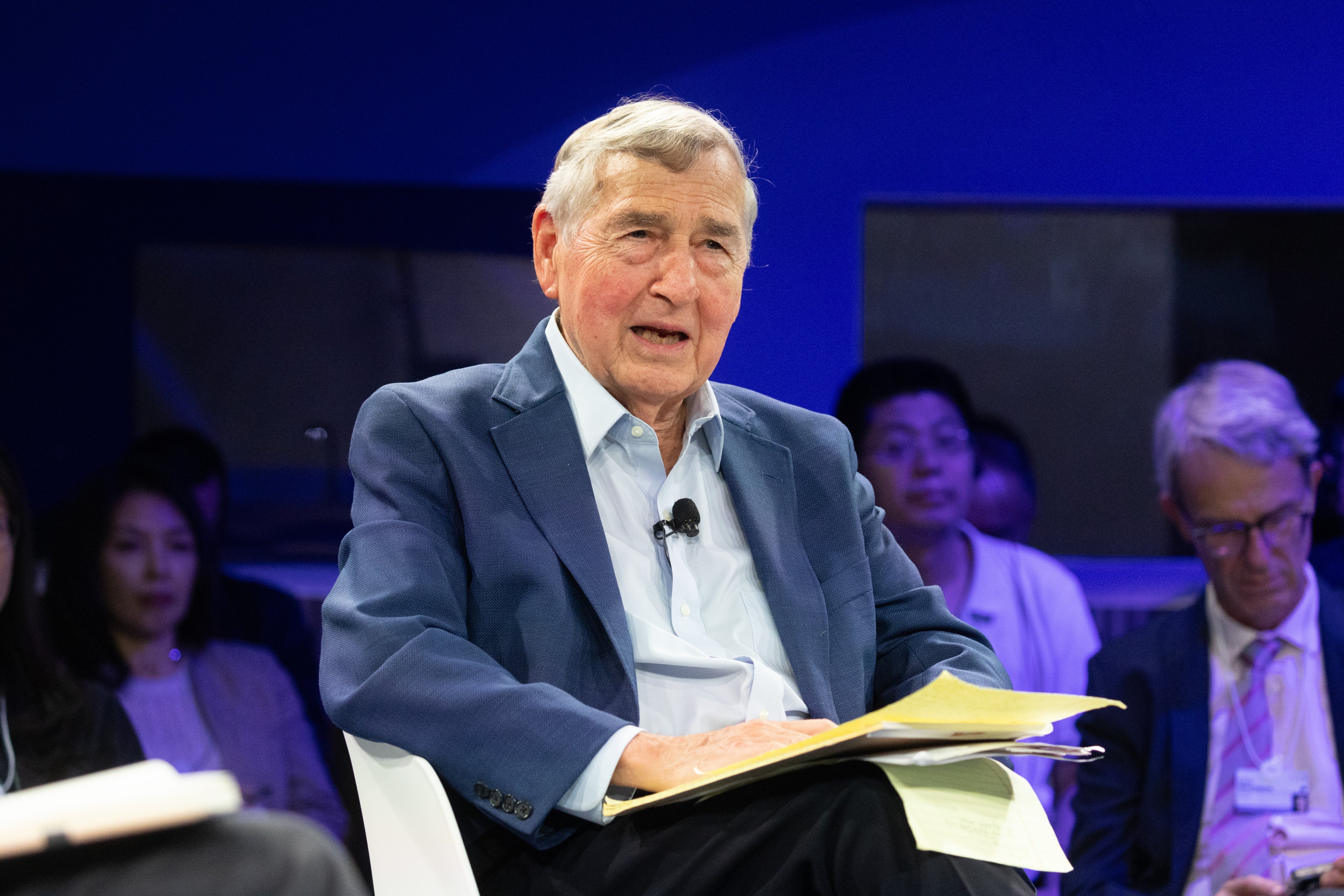The United States and China could reach a trade agreement as early as next week, according to a Harvard scholar, who has offered clues on the state of negotiations weeks after the two rival economies agreed to a trade truce.
Graham Allison, founding dean of Harvard University’s John F. Kennedy School of Government, told a World Economic Forum (WEF) meeting in Tianjin on Thursday: “We’re all sitting on the edge of our seats, waiting to see what comes out of the ongoing conversations between the two governments, but you can be sure they’re very intense currently.”
“I would be surprised if in the next week or so we do not see an MOU (memorandum of understanding) coming out of the discussions that have been going on between Bessent and He and their teams in the intermediate period,” he said, referring to US Treasury Secretary Scott Bessent and China’s Vice-Premier He Lifeng, who have been leading the trade talks.
Allison, who served as assistant secretary of defence under former US president Bill Clinton, said markets tend to behave unsympathetically and when extreme measures like embargoes are introduced, “pretty soon you’ll look and see what happens in the real world that is unsustainable”.
In the case of the heated export control competition between the US and China, he said both sides realised their respective domestic firms would face disruptions because of their measures.
Beijing’s earlier export controls on rare earths – a response to Washington’s sweeping tariffs on Chinese goods – piled pressure on the US automobile industry.
“These are business problems that serious businesspeople know how to solve. And I’m thinking they are going to stabilise this, I believe. But we’ll see,” Allison said.
Allison was speaking at a panel discussion on geopolitics at the WEF summer meeting, more widely referred to as the Summer Davos. He was asked about the next steps for the US and China following their closely watched trade talks in Geneva and London.
The two sides agreed to a temporary truce in May after an explosive tit-for-tat tariff war, pausing most tariffs for 90 days. This month, following a call between Presidents Donald Trump and Xi Jinping, the US and China “agreed in principle a framework” that each side would bring home for review by their top leaders.
Xi told Trump during their call this month that “both sides should make good on the agreement reached in Geneva”, adding that China had been “seriously and earnestly executing the agreement”.
Allison’s assessment of the trade negotiations came a day after he met China’s top diplomat, Wang Yi, who said that he hoped both sides would work together to find a way for the two countries to coexist.
Jin Keyu, a prominent Chinese economist who was a tenured professor at the London School of Economics for 15 years, told the same discussion on Thursday that China’s strategy in its multi-front trade war with the US was shaped by principles of “equivalence, reciprocity and realism”.
While China and the US were “politically opposite but economically competitive”, she said they were not in a new Cold War and there was room for collaboration in areas such as data transparency and artificial intelligence (AI) regulation.
“The core principle guideline for China – just to understand a little bit of China’s view about the trade war – is equivalence, reciprocity and realism,” she said.
The guiding principle meant that China would not lower its tariffs on the US unless the US did the same, she said.
She also cited the phase-one trade deal signed by China and the US in 2020 under the first Trump administration, saying it did not work out because it was unrealistic.
Under the deal, China agreed to buy an additional US$200 billion worth of American goods and services over the following two years compared with 2017 levels.
Jin, now a professor at Hong Kong University of Science and Technology, also warned against conflating geopolitics with economic issues.
“This is not a political tribute. It’s mutual commerce. So all the other aspects, [such as] Taiwan and so forth, do not conflate that with these trade issues,” she said.
Also on the panel was Monica Toft, director of the Centre for Strategic Studies at the Fletcher School of Law and Diplomacy, who argued that there was potentially a “real opportunity” for the US and China to develop their relationship given the nature of the political systems in both countries.
“We’re in a period right now in global politics with personalistic regimes, very strong leaders who happen to be male and who have relationships with one another. They talk to one another, they respect one another, they admire one another,” she said.
“If President Trump decided that he can figure out a way to align interests a little bit more with China – not give away the store here – [then] he has the prerogative and the opportunity to be able to do that.”
“It could be an extraordinary period for humanity if it’s the case that they can figure out a way to collaborate and coordinate on certain issues,” she added.
